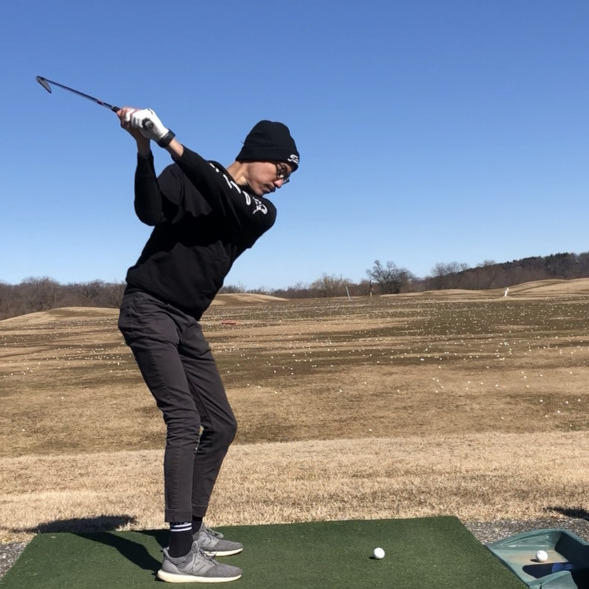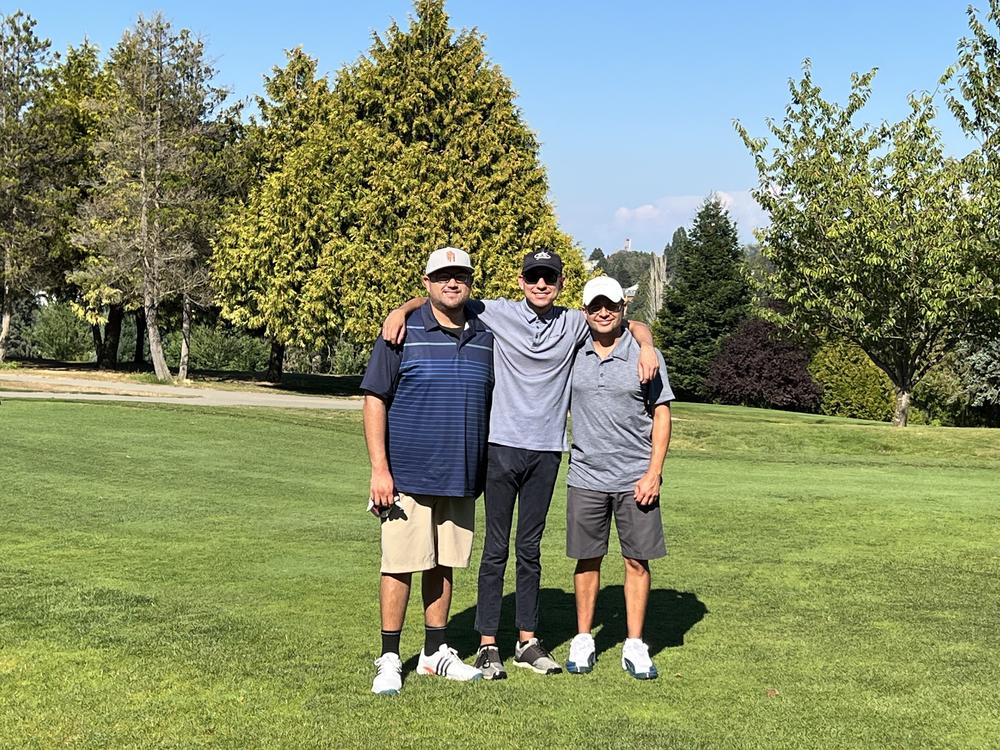Section Branding
Header Content
Golf allows me to pursue perfection, all while building a community
Primary Content
The aspect of golf that lured me in growing up was the sense of opportunity. There's always a chance of teeing up and making something magical happen — whether it's breaking a personal record or potentially making a hole-in-one. The pursuit of perfection.
I started playing when I was about 13 when my parents enrolled me in a junior golf camp at the local public course. From that moment, my life has been pretty much devoted to the game. I worked my way up from cleaning golf carts and picking up the balls on the driving range, to working in the golf shop and giving swing lessons until I decided to pursue journalism.
I had to take a break from the game because I couldn't really afford to play while in college and was still suffering from burnout. I'd still go out once in a while to play with friends, but for the first time since my teens, I was away from my community.
Like a lot of people, my passion for playing golf reignited during the pandemic. The golf course was one of those places that felt relatively safe, because it's outdoors and doesn't require close contact with people.
It's estimated 6.2 million people in the United States either started playing or picked up the sport again in 2020, according to the National Golf Foundation. I took the opportunity to reacquaint myself with the game after a few years playing on and off at my local scene — Langston golf course in Washington, D.C.
From the moment I arrived, this place felt like one of the courses where I grew up: A modest spot where people of all working-class backgrounds came to experience the game, eat lunch or have a beer, it felt like a far cry from the private golf courses where expensive memberships are required. A place where golfers who are Black, brown and women are welcomed. Where I didn't feel out of place for the color of my skin as a Mexican American, as has been the case in some of the courses I've played.
I learned that when Langston opened in 1939, it was only 1 of 20 courses around the country that allowed Black players, and that it was listed on the National Register of Historic Places. When I get paired up with strangers to play at Langston, it's usually more of a diverse crowd.
All of this reinforced my passion for the game of golf. What I learned most is that I missed my golfing community while away from the game.
Seeing a future in the game
I think one of the contributing factors that got me hooked was growing up in El Paso, Texas, where the population is 80% Latino. Being able to see people with my skin tone be successful at the sport was important. Where one of the busiest streets on my side of town was named after a legendary Mexican American golfer named Lee Trevino. I could see a future in this game.
I've also come to learn that golf is where I experience nature. Some people like going for hikes through mountains and wilderness. Well, I like hiking around, chasing a little white ball around a golf course. Some places are more beautiful than others, but the experience of being outside playing a game against mother nature is always fulfilling.
I love that early morning sunshine and the dew that sits on top of the grass. I soak in being able to feel the firmness of the ground beneath my feet as I walk down the fairways. And I enjoy testing the wind direction by clipping a few blades of grass and tossing them to see which way the breeze takes them.
Some of the best walks I've taken have been out on the golf course. It's where I connect with old friends and meet new ones. Some I've been playing with since high school, and our text threads are loaded with trash talk about who's playing well and who isn't. They're usually the ones pushing me to practice and get better. We share experiences on the golf course that are memorable and have stories for days.
The sense of community I've regained with the game of golf during the pandemic is more than I could've ever imagined. My circle only seems to be expanding, and I'm excited to see what the future holds.
What are you really into? Fill out this form or leave us a voice note at 800-329-4273, and part of your submission may be featured online or on the radio.
Copyright 2023 NPR. To see more, visit https://www.npr.org.



